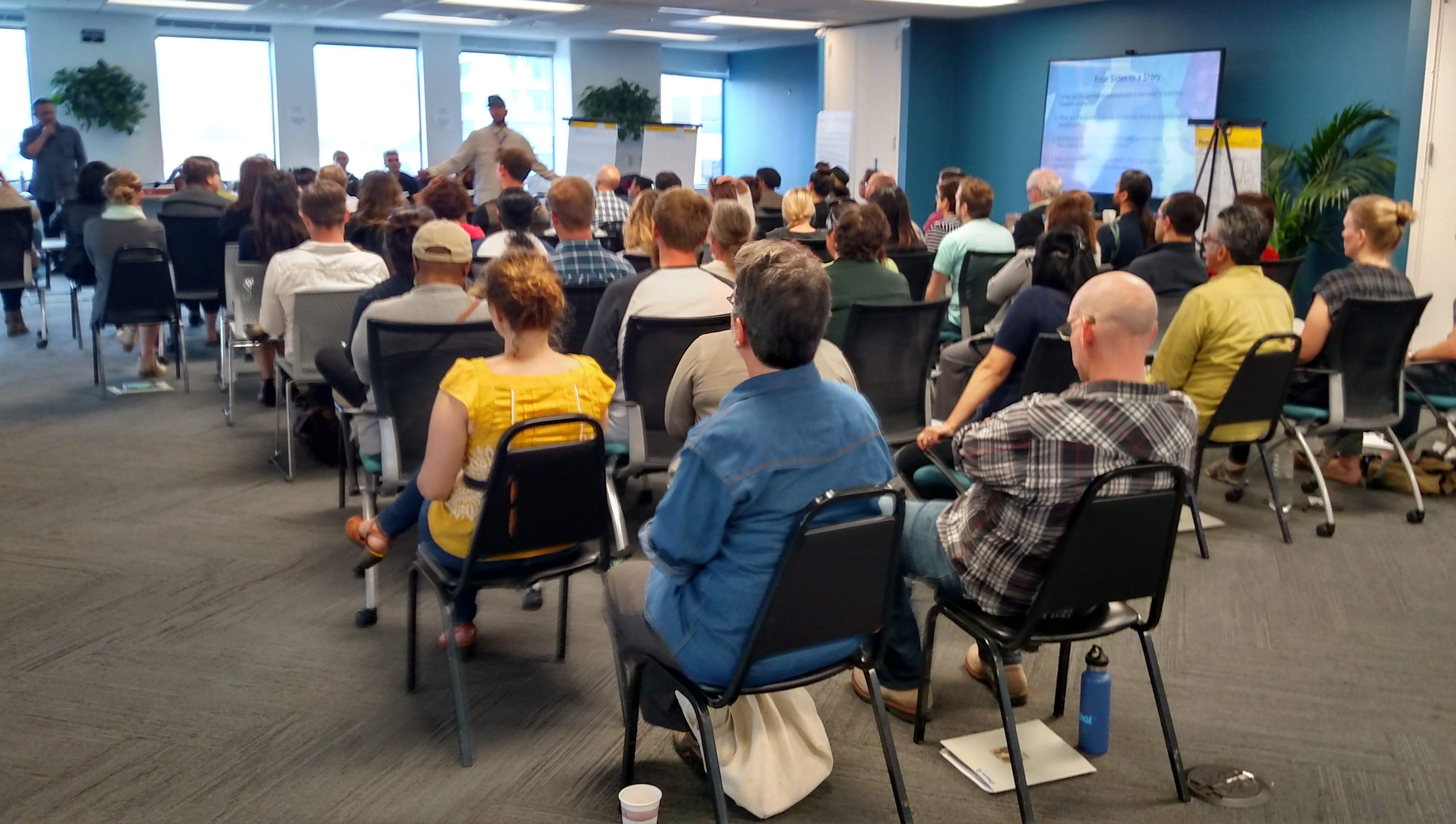As I prepared to participate in Growing for Change, Sierra Club’s two-day equity workshop for every staff person and 150 volunteer leaders, I couldn’t help but reflect on my very first experience with a workshop on identity-based oppression. Just after beginning my first job out of college, I was lucky to experience the City of Seattle’s Race and Social Justice Initiative training, which gave me a framework to further explore how my own privilege shows up in my interactions with others. But I remember leaving the workshop with one burning question: How? Now that I have this information, how do I act on it? How do I take these ideas and my newly expanded understanding of the world around me and turn that into action in my everyday work?
Since then I’ve been on a learning journey of my own, educating myself through reading and listening to the voices of folks with direct experiences of oppression. I’ve even had the opportunity to support the Equity department here at the Sierra Club as a communicator. One thing I’ve learned from this role is: everyone asks the “how” question. “How do I act on this?” is by far the number one question that trainers and facilitators in the equity and justice space get after a workshop.

Attendees at Growing for Change 2017
Growing for Change is the answer to the “how?” question. Knowing that the Sierra Club community contains within it an incredibly broad spectrum of experience with and knowledge of oppression, the workshop was carefully designed to reach everyone, at every stage of their journey. We began on the first day by learning some basic concepts and struggling with some hard truths about the history of the environmental movement. But by day two, we were deep into a concrete, practical analysis of how identity-based oppression shows up in our work at Sierra Club. We read true stories from staff and volunteers with marginalized identities about their experiences with being tokenized, harassed and let down by their communities within Sierra Club, and then talked through how we would respond to similar situations. We even play acted scenarios so we would be better prepared to respond to microaggressions in the moment, instead of freezing up in fear of a difficult conversation.
By the close of the workshop, each participant had action items specific to our own roles within the Sierra Club community and had publicly committed to following through on them. With careful, deliberate facilitation and support from Partners for Collaborative Change, we all answered the “how” question for ourselves.
That’s how this stuff works. No one can answer the “how” question for you, because no one is living your particular life, with full knowledge of the opportunities and challenges before you. It’s up to each of us to learn and grow on our own journey, and use the knowledge and insight we acquire along the way to develop our own analysis of what it means to live out the values of equity, inclusion and justice in our lives.
It helps a lot to have access to an opportunity like Growing for Change. Access to this workshop, with all the resources and time that went into creating it, is a privilege in and of itself. Not everyone has access to similar opportunities. That’s why over the next year we’ll be rolling out learning and action opportunities for all 3 million members and supporters in the Sierra Club community. Everyone deserves access to this knowledge, and by sharing it through blogs like this, we believe we can have a ripple effect that will touch many people’s lives. Stay tuned on our blog for more opportunities to advance your own journey toward equity, inclusion and justice.